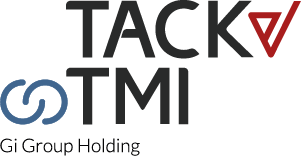Measuring the effectiveness of sales training programmes
In many companies the Training Department or the Sales Management team are under pressure to prove the value of their training programmes, but many do not know where to start.
The purpose of this article is not to justify the development via the many training programmes and methods currently available to develop your sales team; nor is it designed to be yet another discussion around the merits of Kirkpatrick’s 4 Levels of Evaluation which are well established and discussed.
Rather its purpose is to discuss sales training from the perspective of someone who has been involved in the training of salespeople over 25 years and to share some of my experiences of working with over 70 companies and their sales teams from across Europe and beyond.
There are several factors that can lead to successful training interventions and if these are identified by companies thinking of embarking on a sales training programme, they should allow them to measure the effectiveness with some degree of certainty. I have listed these points below.
However, it must be remembered that it is difficult to separate the training from the environment in which the company operates as we know from experience that the best training programme can be seen as ineffective as precisely as you run it your competitors launch a new product range or an aggressive pricing policy leading to a drop in your sales.
Alternatively, a distinctly average sales training programme may achieve star status as one of your key competitors withdraws from the market or has massive problems with their products and your sales team seize these sales giving the training a halo effect.
Notwithstanding those points here are some pointers to ensure success with your training and to prove it has credibility for your senior management:
What do you want the training to achieve?
The importance of this question cannot be underestimated. To answer this question accurately means there are certain things operating within the sales division which you want to start happening, stop happening or increase happening. So, spend time deep diving into this to ascertain you are dealing with the cause of the issue or situation and not the symptoms.
As a (simple) illustration of this point I have been asked many times to run a training programme on ‘closing the sale’ as the sales team are ‘not closing enough deals’. When I have asked why it is ‘closing’ which is the problem I am often shown the sales figures on a downward track as if this is absolute proof.
Most of you reading this will know where this is going. On further investigation of pipelines, field visits with team members and interviews any number of issues can and do arise from product problems (sales team not confident in selling it), quality of leads, delivery problems or pricing and more often than not issues with key skill areas of market and customer knowledge, poor investigative skills and an inability to articulate the value proposition of the company, products and services which in turn mean that any attempt to close, is rebuffed or the sales team never get to that stage. Any training programme on closing skills will miss the mark in this situation.
It is unequivocally the most important question to be asked before any training programme and it is a question that I have asked many times over in discussions with clients. Logic tells us if you don’t know what needs to be trained it will be or impossible difficult to measure it.
How do you measure sales training?
Once you have determined exactly what the problem is or where you want the training to be directed the next question to be answered is this one;
If it is not working how did you know?
What metrics, numbers, signs are telling you this? One area, that can really help here, is pipeline velocity. What are the average times for the average deal to go through the pipeline? Where are the blockages? Are they universal with the team or just some of the team? Where are their areas of competence and where are they absent?
It is critical here to remember that if something alerted to you to a problem area or a skills issue than, by definition, after the training programme you should see an improvement in those same things! Therefore, it is so important you look for the facts/data/metrics etc to prove the point and to measure the results from the training to see if there has been an improvement. These metrics or measurements should always be shared with your trainer to allow them to develop the appropriate training programme to improve in these areas.
If you do not see an improvement the most likely causes are;
- the causes or root cause of the problem/issue have not been found or
- the training was not targeted at the problem sufficiently or
- the trainer not skilled enough.
These last two may seem harsh on the training company and trainer but if questions 1 and 2 are rigorously pursued and investigated then that should be the most plausible explanation.
If the training programme is to sharpen your sales team in several skill areas, you should have observational and field training ratings against your skill competencies in place before the training so that after the training you can again observe and coach to embed the skills that have just been trained.
How will management be involved?
This is another important area, and the answer is that the closer the management is to the sales team then the more they should be involved. For instance, the 3 field sales managers should be on the training programme and the Sales Director should appear at various times during the programme but at the very least at the start and at the end to reinforce in the teams’ mind that this is supported from the top.
Many managers have asked me if their presence will inhibit the training. My answer is that it is right that they should know what is being taught to their team otherwise how can they coach, measure, and evaluate progress. As an aside, if they think their presence will affect the training negatively than that tells me more about their relationship with their team than almost any other comments they can make to me.
From an external trainer’s perspective, the presence of the front-line managers means questions of company policy and protocols can be deferred to these managers and the trainer can focus on the training.
Finally, with the sales managers participating it allows them to directly observe the whole training programme and thus be able to comment on the training, the participation, the reaction of the learners and the effectiveness in how they developed and understood the training. This ‘evidence’ is important and real as it is directly in the manager’s interests that the training works as they are so instrumental in the next stage of measuring how effective the training has been.
What happens after the training?
This is another question I always ask as it is so important. It is naïve to believe a 2 or 3 day training intervention will upskill (permanently) the sales team in the required skills and behaviours. A good training programme should be motivational, energising, educational and fun for the delegates with chances to practice the skills. However, it cannot stand alone.
All effective training requires a commitment from management to embed the training through coaching the sales team in the skills covered b the training. The best place to do this is in the field or on their ZOOM or Teams calls to ensure they are using the skills.
As a test of the training effectiveness do the team know what to do even if they are currently not yet at the required skill level? This is important as if they do not understand what to do than the training has not hit home. If they do know what to do but are not (yet) skilled then the coaching should improve that issue which is why it must be carried out by the sales management team.
What are the sales numbers now telling you?
This relates back to point 2 above. As the training is embedded through coaching you should seen a change in the metrics/numbers/behaviours of the team. Are you now seeing the changes you wanted? Are they doing more of/less of/starting to do the activities you require? Are you seeing through your field coaching feedback an uplift in the skills as employed by the sales team? And finally, are you seeing the impact in some form on your numbers, i.e., the different activities or in your actual results? All these would point towards an effective training programme. It is no secret that effective training does depend on the training programme itself but as you can see from the points above what happens and before are, certainly, even more important. However good trainers can help through all 5 stages listed above and you should use their expertise to help you.
I have run many hundreds of training programmes over the last 25 years but there is no doubt in my mind that the most successful programmes, whether large or small, are where we have worked closely with the sales leadership team within the company formulating accurate answers to the 5 question above. I cannot say that they will always lead to successful training, but I am certain that spending time with the management exploring these issues gives the training the best chance of success and management a good chance of measuring in practical observational and data driven ways the success of their training programme.
Simon Cooper, Senior Training Consultant, Tack TMI UK
Tack TMI are on hand to support you in developing and improving the effectiveness of your sales training programmes. Get in touch today for further information.
News & Insights

Sales onboarding: Improving the success and retention of new sales reps
When hiring a new sales rep it’s important to give them the best chance to succeed to ensure they stay and thrive within your organisation. Here we detail where sales onboarding often goes wrong and how it can be improved.
Read more >
Retain high performing sales reps
Demand for high performing sales reps is high, so it’s important Sales Managers take the right steps to ensure their top performers do not pose a flight risk. Here we detail the steps Sales Managers can take to retain their high performers.
Read more >
